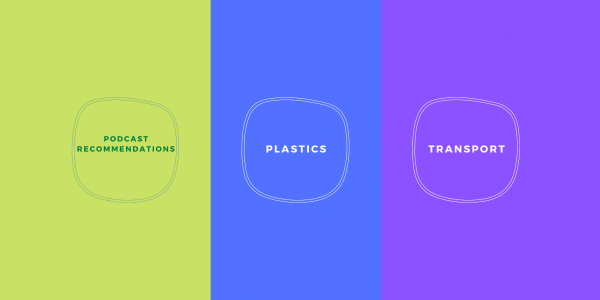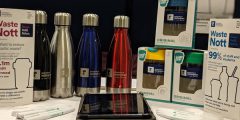Some More Sustainable Listening
August 14, 2020
Last month, Meg justified her love for podcasts and shared some recommendations within the topics: climate and environmental justice, and energy and emissions. You can read that post here. This month, post Plastic Free July and calls for a ‘green recovery’, the podcast topics are: Transport Fully Charged– Air pollution in the modern world ”Helen Czerski …
A Year of 12 Years
July 20, 2020
Sarah Bertram is Head of Daytime Programming at the award winning University Radio Nottingham (URN). A recent addition to Sarah’s portfolio is her show: 12 Years to Save the Planet, for which she received a Student Achievement award at the SU Sustainability Awards. She reflects on the past year of recording, 12 Years to Save the Planet. …
What the heck is a hedgehog tunnel?
July 6, 2020
Hannah Constantin, from the faculty of Engineering and the Hedgehog Friendly Campus group, gives tips and inspiration for engaging with the hedgehogs in your garden. If you’ve clicked on this article, you’ve taken your first step towards tracking hedgehogs in your own garden! Read on to learn all about it… What’s the problem? Hedgehog …
Some Sustainable Listening
June 29, 2020
Our Student Communications and Engagement Assistant, Meg, is a podcast enthusiast. Here, she introduces a new feature to our newsletters: It is embarrassing how many times my sentences start with, ‘so I was listening to this podcast…’, and it generally results in an eye roll from my friends. I think podcasts are a great …
Gardens in the Sky
June 2, 2020
Did you know that we have more than 10 green roofs across a number of our building on both University Park and Jubilee Campus. Green roofs aren’t anything new and we have been covering roofs with vegetation for centuries, whilst those early installation provided protection from the elements and good insulation they were neither waterproof …
The New Normal
May 6, 2020
Environment Manager Gavin Scott reflects on the current situation and some thoughts on how we retain some behaviours How things have changed over the last 6 weeks! Life has changed significantly for us all and I’m sure we are all wondering when things will get back to normal and indeed what that new normal will …
Energy in 2019: A Round Up
January 30, 2020
Guest post by Bryony Attenborough, Energy Manager at UoN. So here we are again, the start of a new year, the start of a new decade and a leap year, to boot! I’d like to go back, and bamboozle you with a couple of facts…last year saw UK renewables generating more electricity than fossil fuels for …
A Warm Welcome
October 2, 2019
Hi! My name is Emily and I am the newest Sustainable Communications and Engagement Assistant within the Sustainability Team. Through this I will be spending the next six months aiming to strengthen the communication and promotion of the University’s sustainability initiatives, as well as to provide operational support to the Sustainability team here in the …
Technicians and sustainability
September 19, 2019
Guest post by Lee Hibbett, Senior Research Support Technician in the School of Pharmacy. I have worked for many years at the University in medicinal chemistry labs and I have always been passionate about sustainability. Unfortunately not much was done in my area on this until I was asked to join the University’s WasteNott working …
A quick (pond) dip in the Djanogly pond
July 17, 2019
Guest blog by Dr. Tom Hartman, School of Life Sciences, on a brief survey of one of the ponds on University Park. The pond by the Djanogly arts centre has been in existence for many decades until the tram line was installed in 2014 when it was completely destroyed. A smaller pond was then excavated …










